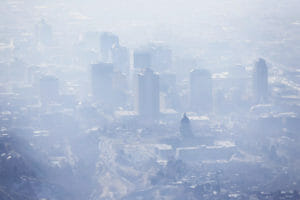Scientists Expect Allergies to Get Worse With Climate Change
The results aren’t in, but researchers are beginning to study how warmer weather, longer summers, expanding insect migrations and shifting rainfall may lead to more pervasive and expensive allergy problems in the near future.
The results aren’t in, but researchers are beginning to study how warmer weather, longer summers, expanding insect migrations and shifting rainfall may lead to more pervasive and expensive allergy problems in the near future.
Global warming’s effect on the territorial range of allergens “played out in the form of the duration of the pollen season,” said Leonard Bielory, a physician, allergist and a professor at Rutgers University’s Center for Environmental Prediction. “The worst was in the beginning of the year,” he said, noting New Jersey’s record high pollen counts in February.
According to the Asthma and Allergy Foundation of America, more than 60 million Americans have some sort of allergy, which altogether carry a price tag of $21 billion annually. Costs are expected to rise significantly, especially if pollen counts double by 2040 as expected.
— Posted by Alexander Reed Kelly.
Your support matters…ClimateWire via Scientific American:
The allergy expenses don’t just come from treating them; a large chunk of the economic footprint comes from lost productivity as people stay home or work less to deal with puffy faces, labored breathing and rashes, according to Lyons. This can also have long-term consequences as students stay home from school and slow their education.
Lyons observed that temperature changes and erratic weather drive a cycle that could further worsen allergy risks. Natural and human-produced greenhouse gases change the climate, thereby altering how allergy-inducing plants, insects and molds spread.
As more people are exposed, more people seek treatment, taking medications and visiting doctors. This increased consumption further drives energy demands and production of goods, which can increase greenhouse gas output.
Independent journalism is under threat and overshadowed by heavily funded mainstream media.
You can help level the playing field. Become a member.
Your tax-deductible contribution keeps us digging beneath the headlines to give you thought-provoking, investigative reporting and analysis that unearths what's really happening- without compromise.
Give today to support our courageous, independent journalists.






You need to be a supporter to comment.
There are currently no responses to this article.
Be the first to respond.